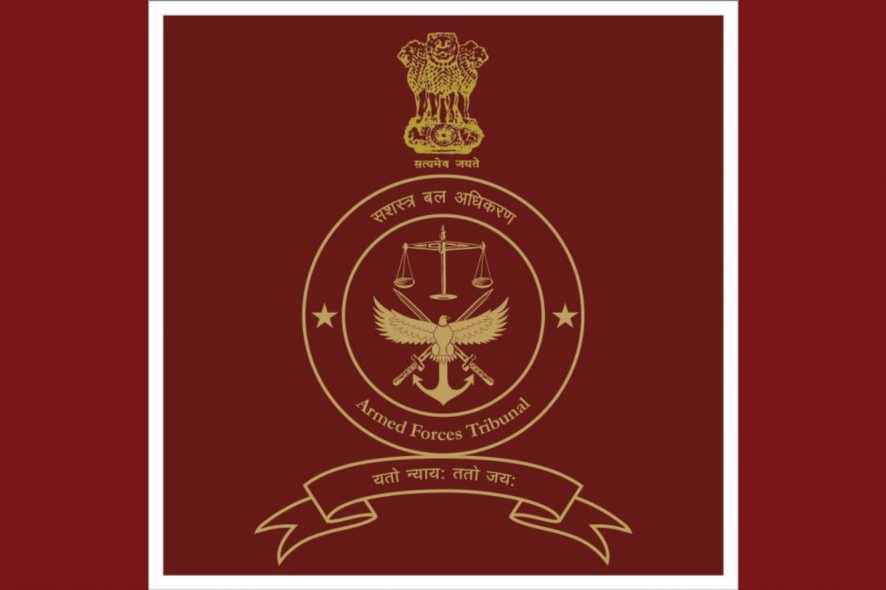Armed Forces Tribunal, New Delhi: A Bench comprising of Virendra Singh (Chairperson) and Lt. Gen. Sanjiv Chachra (Member) dismissed the original application filed, and gave certain directions to the service chiefs and other personnel responsible for conducting DSSC and TSOC about the merits of communicating any adverse/weak remarks in the course reports to the students for their evaluation and self-assessment.
The applicant was a bright army officer, who had completed several courses within the army with flying colours, without any adverse remarks. Having been selected for the Training Staff Officers’ Course (TSOC-37), he also stated that he had never had any adverse remarks in any of his ACRs, and had always performed his duties with sincerity and devotion. The applicant was considered for the position of Colonel by the Selection board for promotions. On being non-empanelled for the same, he argued that the adverse remark in the TSOC course report was responsible for him not being empanelled for the position of colonel. He filed a non-statutory complaint which was rejected by the Chief of Army Staff. Subsequently, he brought a statutory complaint before the government, pleading for a reconsideration of his application for the position of colonel and the removal of the adverse remark from his TSOC -37 Course Report as it was arbitrary and discriminatory. Furthermore, he argued that the adverse remark had not been communicated to him by the staff conducting the course, and thus the principles of natural justice had been violated.
After the government rejected the contentions of the applicant, the present application was filed. On considering the criteria for selection of candidates, the CR of the applicant, the quantification and distribution of marks, the division bench stated that an officer was promoted after a selection board perused through his/her overall profile, honours, awards, disciplinary record etc. and on the basis of the officer’s comparative merit. It was stated that the applicant was not empanelled as he had a lower comparative merit with respect to the other officers in contention for the position, and not because of the adverse remark. This was substantiated by the tribunal by illustrating that even without the marks allotted for value judgment, the applicant was not going to be empanelled according to his score. The tribunal held that the selection board had conducted the selection on a fair, objective and performance-based standard, and the applicant was rightly not empanelled for the position of colonel.
The tribunal also stated that although communication of adverse remarks is important for a person to know his fallibilities and work on improving them, the applicant had been informed about the adverse remark during periodic interactions. Furthermore, the communication, of course, reports to student officers is not required and so is not undertaken by the responsible officers, and the tribunal found no reason to uphold the argument of the violation of the principles of natural justice by the applicant. The tribunal also distinguished the present case from the cases of Union of India v. Bahadur Singh, (2006) 1 SCC 368, State of U.P. v. Yamuna Shankar Misra, (1997) 4 SCC 7 and S.T. Ramesh v. State of Karnataka (2007) 9 SCC 436. The tribunal stated that the cases mentioned dealt with modalities of recording and communication of adverse entries, which was not a consideration in the present case.
Thus, the tribunal dismissed the original application and gave no order with respect to costs. It also mentioned that it might be desirable for the adverse remarks related to an officer’s performance to be communicated to him as it would provide an opportunity for self-evaluation and assessment, especially in courses such as DSCC and TSOC, which are career progressing courses. However, the tribunal also expressed that it was something for the service chiefs to consider and the same was solely on their discretion. [Pankaj Bisht v. Union of India, 2018 SCC OnLine AFT 8341, Order dated 16-10-2018]






